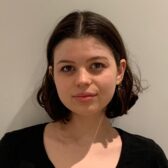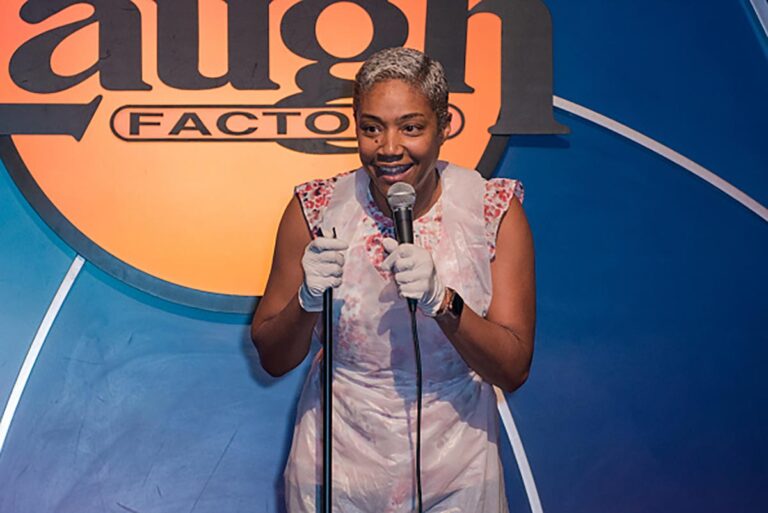
When you think about the comedy world, a number of Jewish comedians probably come to mind. Icons like Joan Rivers paved the way, proudly integrating their Jewish heritage into their humor.
Read more: Get to know the Jewish comedian who inspired “The Marvelous Mrs. Maisel”
In 2023, the influence of Jewish comedians remains strong, and we’re highlighting just a few from diverse Jewish backgrounds around the world. The comedians featured here have released major projects in the last few years and continue to explore and challenge aspects of Jewish identity in their work.
What’s the connection between Jews and comedy?
The roots of Jewish humor date all the way back to the Bible (remember Sarah laughing when an angel tells her she’s going to have a baby?). However, the distinctive Jewish humor we know and love today originated in 19th-century Eastern Europe.
Writers and playwrights like Sholem Aleichem and Abraham Goldfaden began chronicling the bittersweet daily life in the shtetl.
Jewish humor began as an insider’s form of entertainment, with many flocking to the Catskills, famously known as The Borscht Belt, where Jewish immigrants exchanged stories and shared traditions.
As the 20th century progressed and Jews assimilated into American culture, so did Jewish comedians. By the 1970s, 80% of American comedians were Jewish, according to TIME Magazine.
Why did Jews flock to comedy? Why, to cope, of course. Humor often serves as a powerful antidote to adversity, including antisemitism, enabling laughter even amidst hardship.
A quintessential example of humor as a coping mechanism is the joke often told during holidays: “They tried to kill us, we won, let’s eat!” Using humor, this captures the resilience of the Jewish people through adversity.
Sigmund Freud’s Relief Theory sheds light on this coping mechanism. Freud suggested that humor arises from the release of pent-up energy. This idea resonates with the Jewish experience, where humor may serve as a way to navigate generational and current traumas.
One example is this famous joke from “Fiddler on the Roof,” where a man asks the rabbi if there is any blessing for the Tzar, the antisemitic ruler of Russia. His response? “May God bless and keep the Tzar…far away from us!”
Alex Borstein (1971-)
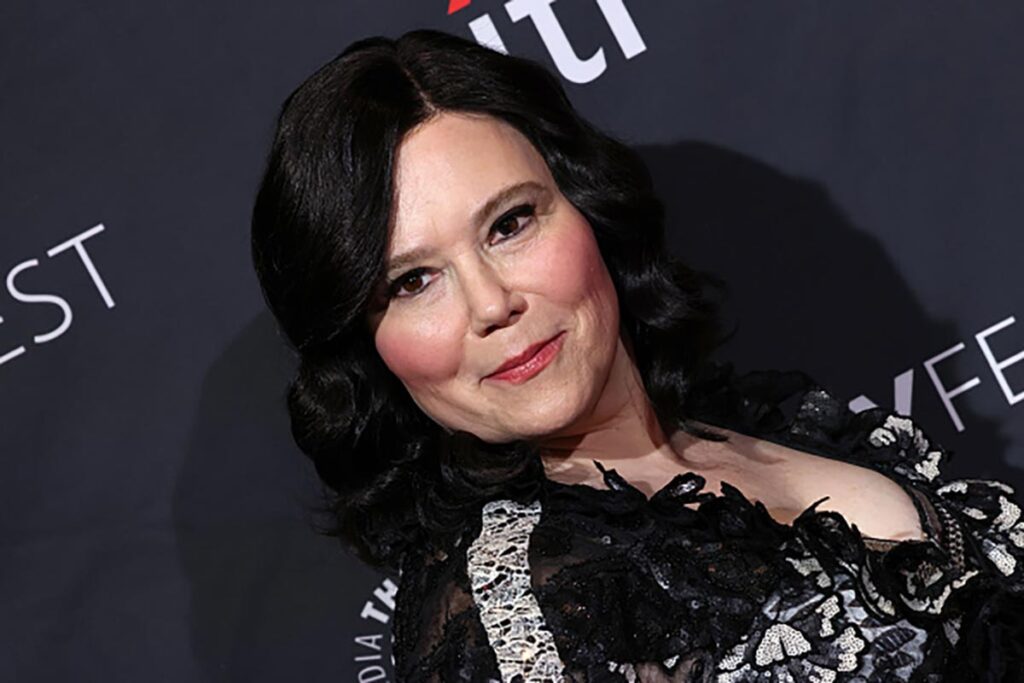
“The Marvelous Mrs. Maisel” actress Alex Borstein attributes her love of comedy to her Jewish faith.
“One of my favorite things about being Jewish is there’s a natural sense of comedy and comedic timing and performance…rabbis tell stories that are moving and very funny…It’s one of my favorite things about being Jewish,” Borstein told Kveller.
Borstein got her start on the sketch-comedy series “Mad TV” and has also voiced Lois Griffin on “Family Guy” for the last two decades. However, fans have been able to see the true depths of Borstein’s range and comedic timing in her portrayal of Susie Meyerson on “Mrs. Maisel.”
She said that “Mrs. Maisel” felt like “comfort food” for her, providing a way for her to connect with her Jewish heritage. Borstein earned two Emmy awards for the role, one of which she dedicated to her grandmother, a Holocaust survivor.
“My grandmother turned to a guard…and she said, ‘What happens if I step out of line?’ And he said, ‘I don’t have the heart to shoot you, but somebody will,’ and she stepped out of line. For that, I am here…So step out of line, ladies. Step out of line!” she said in her acceptance speech.
Mel Brooks (1926-)
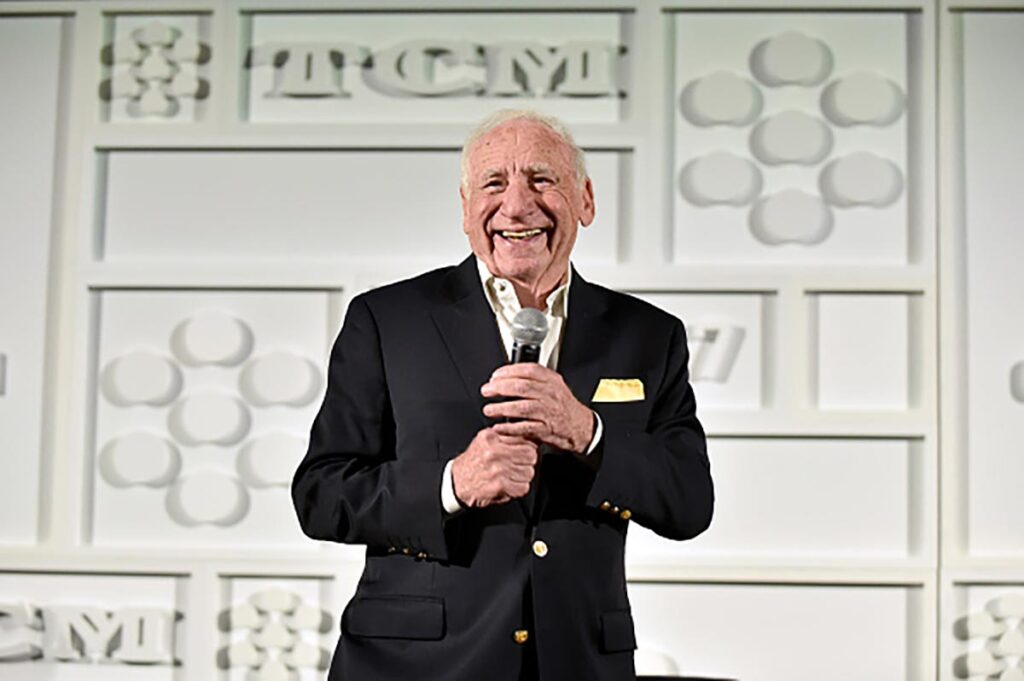
At 97, Mel Brooks has been a comedic force for over 70 years. He is one of only 18 artists to achieve EGOT status — winning an Emmy, Grammy, Oscar, and Tony Award.
Brooks excels at sharp social commentary. He won an Academy Award for his landmark 1968 film “The Producers,” starring Jewish actors Zero Mostel and Gene Wilder, who frequently collaborated with Brooks.
The film’s plot revolves around two ambitious Broadway producers scheming to defraud investors with an outrageously offensive show centered on a sympathetic portrayal of Hitler.
As a Jewish comedian and World War II veteran, Brooks views humor as an incredibly powerful tool in combating bigotry.
He once said regarding the portrayal of Hitler in “The Producers”: “You can’t get on a soapbox with these orators, because they’re very good at convincing the masses they’re right…But if you can make them look ridiculous, then you can win over the people.”
In 2001, Brooks adapted “The Producers” into a musical, setting a record for the most Tony Awards ever won, and the cast album also earned him a Grammy.
In 2023, Brooks released the Hulu series “History of the World, Part II,” a follow-up to his 1981 film “History of the World.” Brooks is not only a key figure in shaping today’s comedy landscape but continues redefining it.
Tiffany Haddish (1979-)
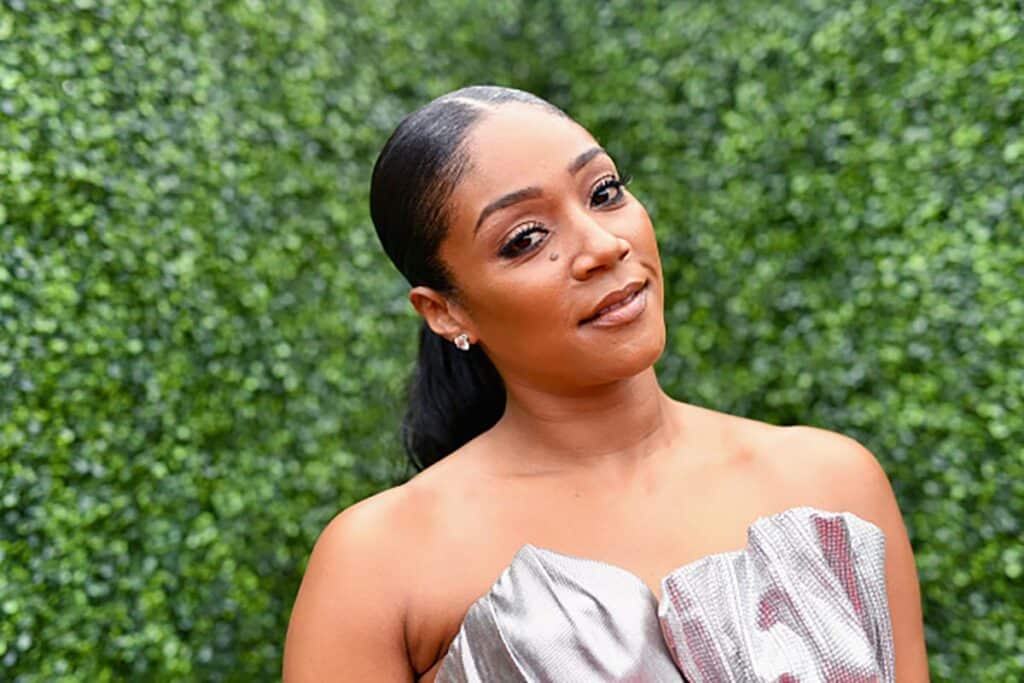
Jewish comedian Tiffany Haddish rose to fame with her 2017 comedy “Girls Trip,” a lively film co-starring Queen Latifah and Jada Pinkett Smith. Since then, she has become a versatile figure in the comedy world with roles on stage, screen, and in animation.
Haddish’s journey to embracing her Jewish heritage is as compelling as her career. At 27, she reunited with her father, an Eritrean Jew, which ignited her exploration into her Jewish roots.
“I didn’t even know Black Jews existed. I didn’t know anything about Judaism for a long time,” Haddish shared about her experience.
In 2019, coinciding with her 40th birthday and her own bat mitzvah, Haddish released the Netflix comedy special “Black Mitzvah.”
Preparing for her bat mitzvah, she found a profound connection with Judaism, saying, “I feel like more people should figure out who they really are. Find out your bloodline, what you are, study and learn from that. I’ve learned so much; I’ve been studying the Torah, I’ve been learning Hebrew.”
Her 40th birthday and bat mitzvah celebration brought together the Jewish comedy community in a star-studded event.
Officiated by Rabbi Susan Silverman, Sarah Silverman’s sister, the ceremony also honored Billy Crystal with an aliyah. Haddish’s story is a testament to the importance of learning your history and finding your roots, no matter your age.
Read more about Tiffany Haddish’s Jewish background
Natasha Lyonne (1979-)
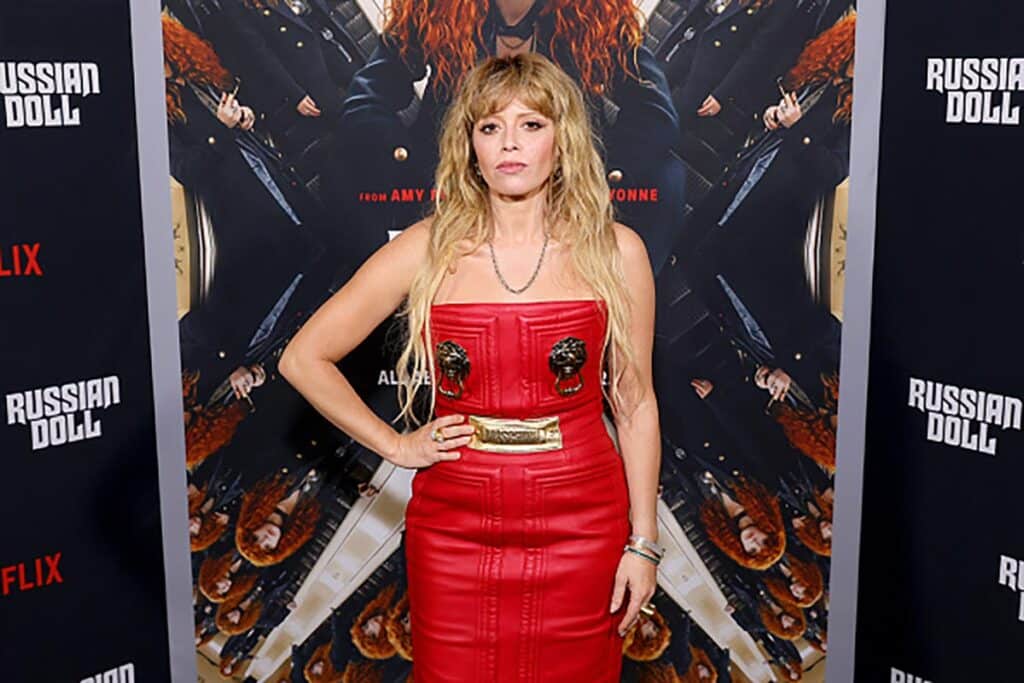
Natasha Lyonne is known for her old-school New York accent and her involvement in offbeat, cult classic projects featuring some of today’s most memorable Jewish characters.
Born and raised in a New York City Orthodox household, Lyonne began her Hollywood career early, appearing as a child in “Pee Wee’s Playhouse” and in Nora Ephron’s movie “Heartburn.”
Lyonne gained prominence in the 1990s with roles in “But I’m A Cheerleader!” — a film about a teenager coming to terms with her sexuality — and “Slums of Beverly Hills,” a comedy-drama about a dysfunctional Jewish family living near Los Angeles.
In the 2010s, Lyonne starred in the Netflix hit series “Orange Is the New Black,” where she played the fast-talking, charismatic Nicky Nichols. Set in a women’s prison, the show frequently touches on Nicky’s Jewish heritage, even featuring a flashback of her bat mitzvah.
Lyonne’s success with Netflix continued with “Russian Doll,” which she co-created, wrote, produced, and starred in since 2019. The comedy-drama series centers on a woman who repeatedly wakes up on her 36th birthday — a significant age in Judaism referred to as “double-chai.”
Additionally, the exploration of Jewish identity is a prominent theme throughout the show, further establishing Lyonne’s connection to her heritage in her work.
Nick Kroll (1978-)
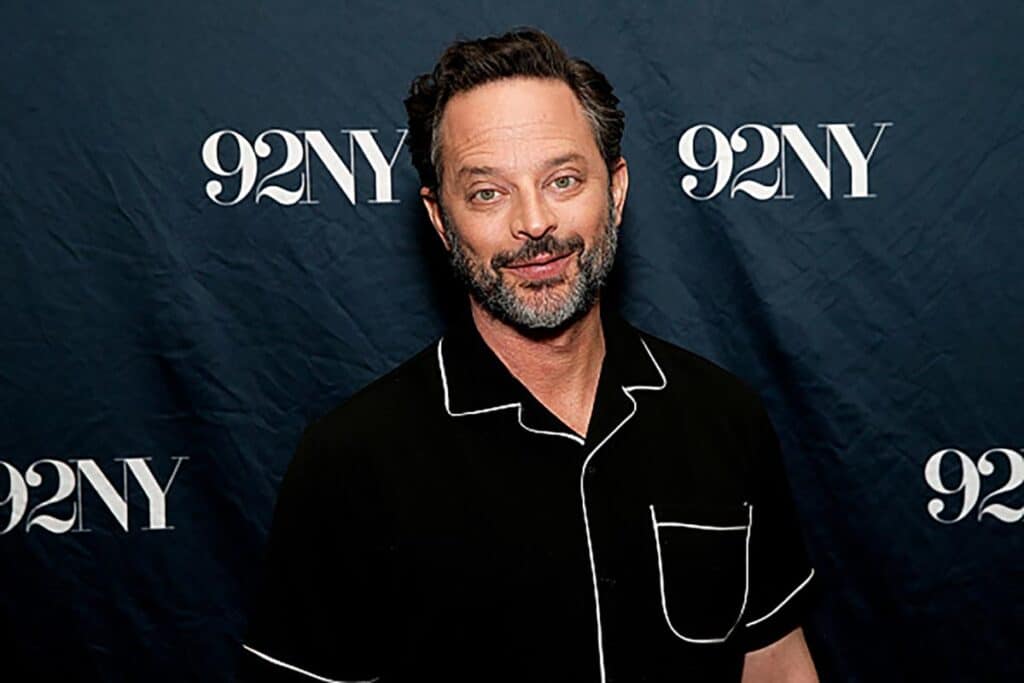
If you’re a fan of animation, then you likely resonate with the works of writer and voice actor Nick Kroll.
Raised in a Conservative Jewish household, Kroll began as a writer for Comedy Central. He was already a celebrated voice actor when he gained mainstream attention with the launch of “Big Mouth.”
This animated series revolves around middle schoolers navigating puberty and adolescence. While its raunchy humor isn’t for everyone, “Big Mouth” has earned praise for its candid discussions on identity, mental health, and sex positivity.
Kroll not only co-created, wrote, and executive produced the show, but he also voices the protagonist, Nick, and several other key characters. Here he is, showcasing his range of character voices.
“Big Mouth” is filled with Jewish humor. While the fictional Nick isn’t Jewish, his best friends Andrew (voiced by John Mulaney) and Jessi (voiced by Jessi Klein) are. The show features Jessi’s bat mitzvah in season one and a Passover celebration with Nick and Andrew in season three.
This year, Jewish comedy past met Jewish comedy present. Kroll writes and stars in Mel Brooks’ “History of the World, Part II.” Kroll has said that Brooks is his “true comedic hero.”
Taika Waititi (1975-)
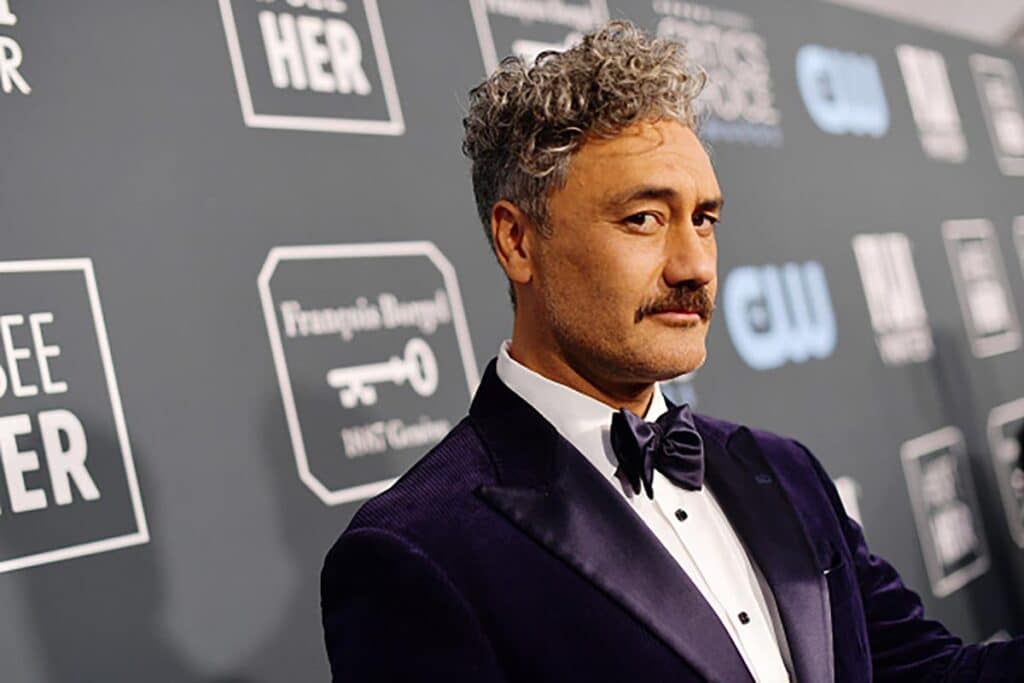
Writer, director, and actor Taika Waititi is currently one of Hollywood’s biggest names. Born in New Zealand, Waititi identifies as a Polynesian Jew, and early in his career, he used his mother’s maiden name, Taika Cohen.
Waititi first gained recognition with his feature films “Eagle vs Shark” and “Boy,” as well as the 2014 vampire mockumentary “What We Do in the Shadows.”
Following in the satirical footsteps of Mel Brooks, Waititi also won an Academy Award for his 2019 Holocaust film “Jojo Rabbit.”
This poignant comedy-drama follows Jojo, a 10-year-old boy in the Hitler Youth, who learns that his mother, a member of the Resistance, is hiding a Jewish girl in their home.
In “Jojo Rabbit,” Waiti not only wrote and directed the film but also played Jojo’s imaginary friend, a ludicrously depicted Adolf Hitler.
He explained to USA Today: “I didn’t want [Hitler] to have the satisfaction of knowing that someone studied him, studied every nuance of his physicality…I don’t think he deserves someone making that much effort.”
When asked why he, as a Jew, chose to take on the part, Waititi’s answer was replied: “The answer is simple: what better f*ck you to that guy?”
Conclusion
Although the comedians on this list represent diverse Jewish backgrounds, they all draw on Jewish experience in their comedy.
What unites these comedians is their ability to channel their stories into their art — bringing us laughter in the process. In the face of collective historical traumas or individual challenges, these Jewish comedians continue a long-standing tradition: using humor to bring joy and light into the lives of others.
Originally Published Dec 28, 2023 08:19PM EST
